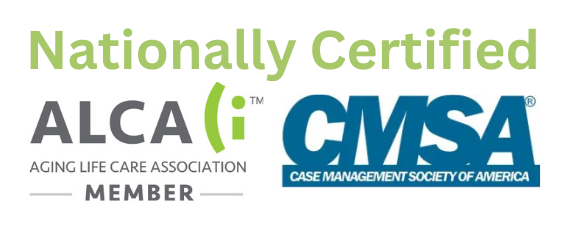What Causes Alzheimer’s?
The causes of Alzheimer’s disease are not yet fully understood, but probably include a combination of:
- Age-related changes in the brain, like shrinking, inflammation, blood vessel damage, and breakdown of energy within cells, which may harm neurons and affect other brain cells.
- Changes or differences in genes, which may be passed down by a family member. Both types of Alzheimer’s — the very rare early-onset type occurring between age 30 and mid-60s, and the most common late-onset type occurring after a person’s mid-60s — can be related to a person’s genes in some way. Many people with Down syndrome, a genetic condition, will develop Alzheimer’s as they age and may begin to show symptoms in their 40s.
- Health, environmental, and lifestyle factors that may play a role, such as exposure to pollutants, heart disease, stroke, high blood pressure, diabetes, and obesity.
Watch this video to see how Alzheimer’s disease changes the brain.
What Are the Signs and Symptoms of Alzheimer’s?
Memory problems are often one of the first signs of Alzheimer’s. Symptoms vary from person to person, and may include problems with:
- Word-finding, or having more trouble coming up with words than other people the same age.
- Vision and spatial issues, like awareness of the space around them.
- Impaired reasoning or judgment, which can impact decisions.
Other symptoms may be changes in the person’s behavior, including:
- Taking longer to complete normal daily tasks.
- Repeating questions.
- Trouble handling money and paying bills.
- Wandering and getting lost.
- Losing things or misplacing them in odd places.
- Mood and personality changes.
- Increased anxiety and/or aggression.
How Is Alzheimer’s Diagnosed and Treated?
Doctors may ask questions about health, conduct cognitive tests, and carry out standard medical tests to determine whether to diagnose a person with Alzheimer’s disease. If a doctor thinks a person may have Alzheimer’s, they may refer the person to a specialist, such as a neurologist, for further assessment. Specialists may conduct additional tests, such as brain scans or lab tests of spinal fluid, to help make a diagnosis. These tests measure signs of the disease, such as changes in brain size or levels of certain proteins.
There is currently no cure for Alzheimer’s, though there are several medicines approved by the U.S. Food and Drug Administration (FDA) that can help manage some symptoms of the disease along with coping strategies to manage behavioral symptoms. There are also medications emerging to treat the progression of the disease by targeting its underlying causes. Learn more about how Alzheimer’s disease is treated.
Most medicines work best for people in the early or middle stages of Alzheimer’s. Researchers are exploring other drug therapies and nondrug interventions to delay or prevent the disease as well as treat its symptoms.
What Are the Stages of Alzheimer’s?
Alzheimer’s disease slowly gets worse over time. People with this disease progress at different rates and in several stages. Symptoms may get worse and then improve, but until an effective treatment for the disease itself is found, the person’s ability will continue to decline over the course of the disease.
Early-stage Alzheimer’s is when a person begins to experience memory loss and other cognitive difficulties, though the symptoms appear gradual to the person and their family. Alzheimer’s disease is often diagnosed at this stage.
During middle-stage Alzheimer’s, damage occurs in areas of the brain that control language, reasoning, sensory processing, and conscious thought. People at this stage may have more confusion and trouble recognizing family and friends.
In late-stage Alzheimer’s, a person cannot communicate, is completely dependent on others for care, and may be in bed most or all the time as the body shuts down.
How long a person can live with Alzheimer’s disease varies. A person may live as few as three or four years if he or she is older than 80 when diagnosed, to as long as 10 or more years if the person is younger. Older adults with Alzheimer’s disease need to know their end-of-life care options and express their wishes to caregivers as early as possible after a diagnosis, before their thinking and speaking abilities fail.
What Is Mild Cognitive Impairment?
Mild cognitive impairment, or MCI, is a condition in which people have more memory problems than normal for their age but are still able to carry out their normal daily activities. A doctor can do thinking, memory, and language tests to see if a person has MCI. People with MCI are at a greater risk for developing Alzheimer’s disease, so it’s important to see a doctor or specialist regularly if you have this condition.






